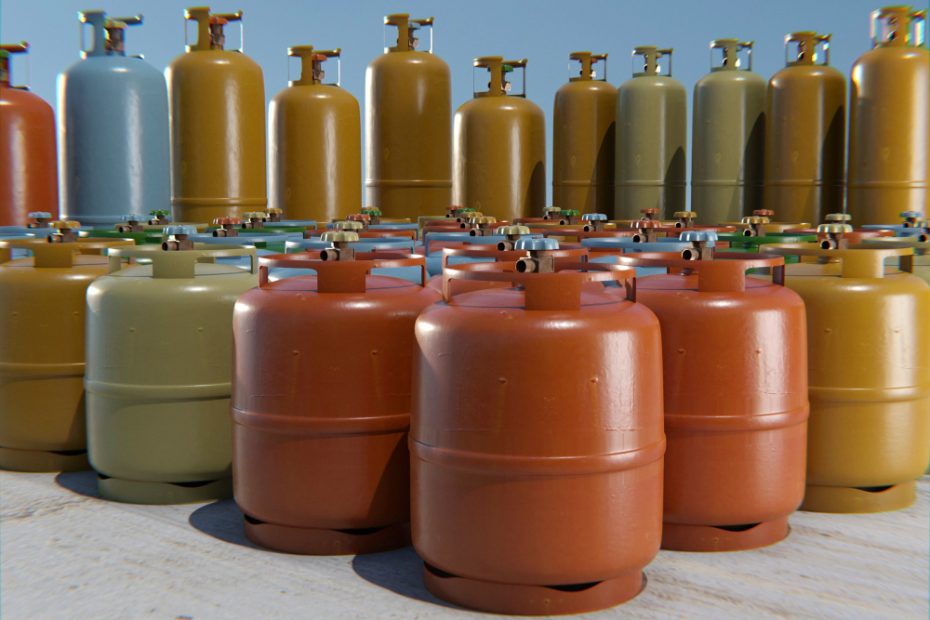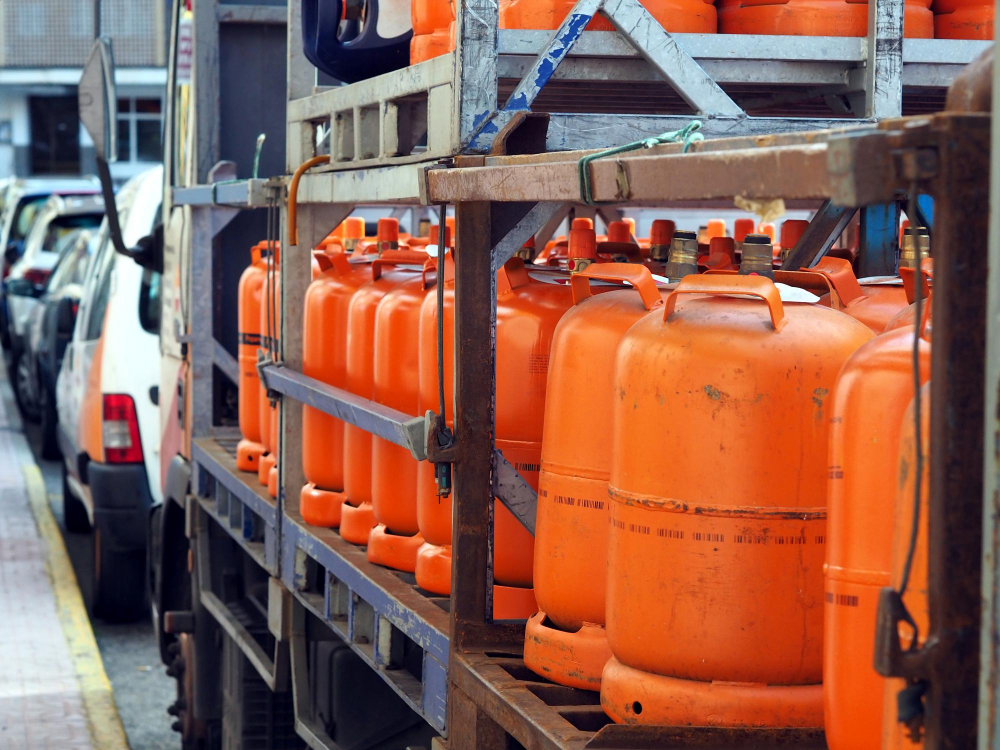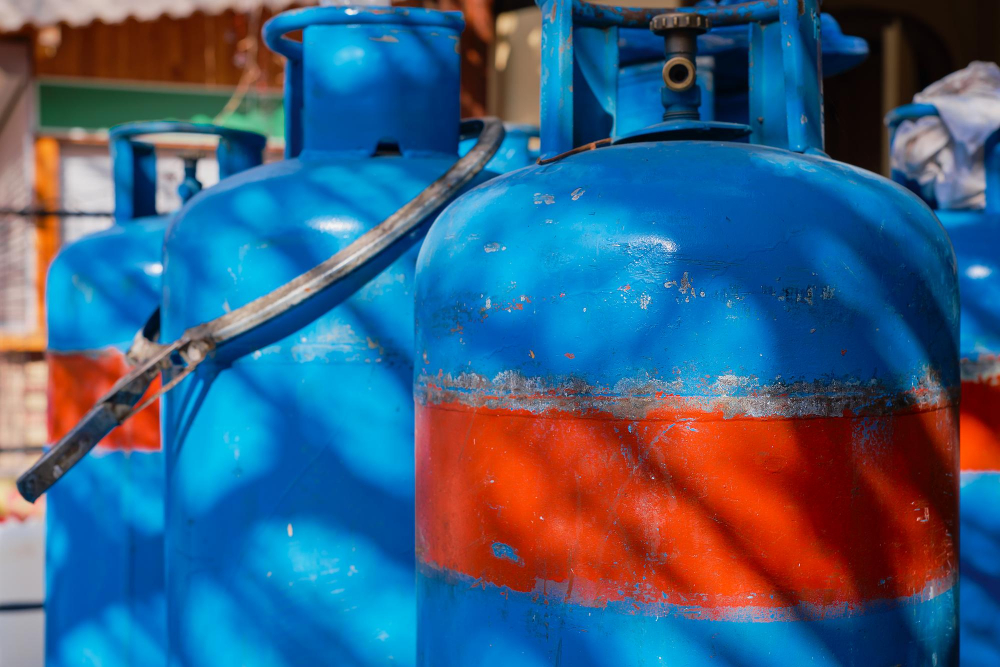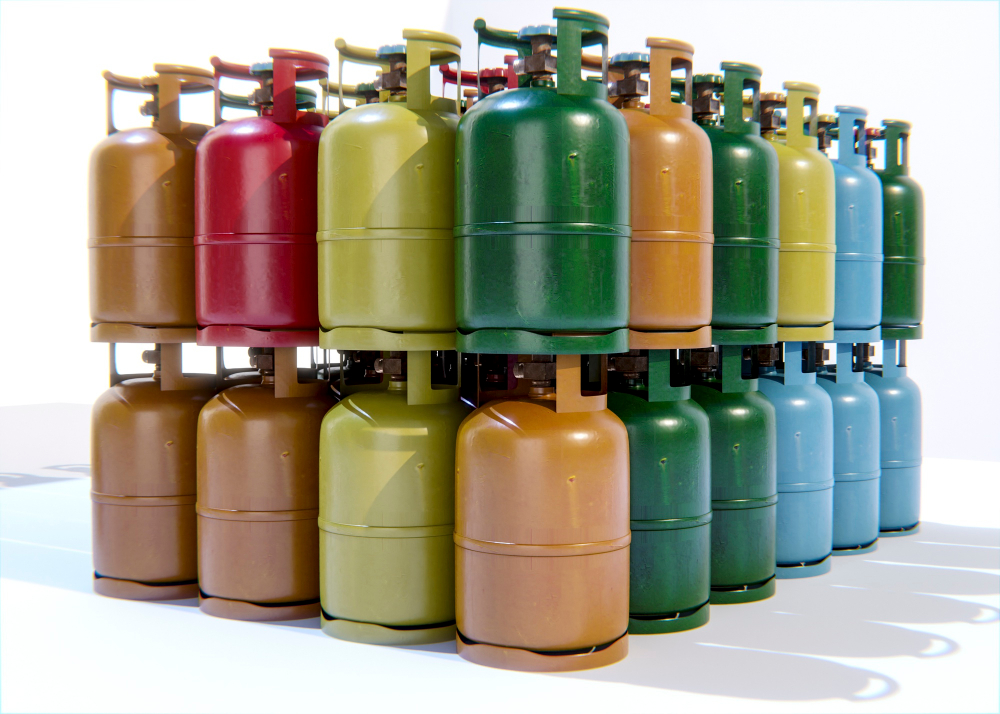What is the difference between butane and propane BBQ?
When it comes to barbecuing, choosing the right fuel can make a big difference in the taste and cooking experience. In the UK, two popular options are butane and propane. While they may seem similar, there are some key differences between the two. In this article, we will explore the characteristics of butane and propane BBQs and help you make an informed decision for your next outdoor grilling event.
Butane BBQ
Butane is a hydrocarbon gas that is commonly used as fuel for portable BBQs. It is known for its high energy content, which makes it an efficient option for cooking. Butane BBQs are often preferred for their convenience and ease of use. They are typically lightweight and compact, making them ideal for camping trips or picnics. Butane canisters are readily available and easy to replace, ensuring that you always have a fuel source on hand.
Pros of Butane BBQ:
- Portable and lightweight
- Convenient to use
- High energy content
- Easily replaceable fuel canisters
Cons of Butane BBQ:
- May struggle in colder temperatures
- Butane canisters have a lower pressure compared to propane
- Shorter burn time compared to propane
Quote: “Butane BBQs are a great choice for those who prioritize portability and ease of use.”
Propane BBQ
Propane is another common fuel option for BBQs in the UK. It is a hydrocarbon gas that offers high heat output and consistent performance, making it a popular choice for backyard grilling. Propane BBQs are often larger and more powerful than their butane counterparts, making them suitable for cooking larger quantities of food or for hosting gatherings.
Pros of Propane BBQ:
- High heat output
- Consistent performance
- Suitable for larger quantities of food
- Works well in colder temperatures
Cons of Propane BBQ:
- Less portable and heavier
- Propane tanks can be bulky and require storage space
- May require professional installation for built-in models
Quote: “Propane BBQs are the go-to choice for those who prioritize power and versatility.”
Choosing the Right Fuel for Your BBQ
When deciding between butane and propane for your BBQ, consider your specific needs and preferences. If you value portability and convenience, a butane BBQ may be the ideal option for you. On the other hand, if you prioritize power and are looking to cook larger quantities of food, a propane BBQ might be the better choice.
It’s important to note that some BBQs offer the flexibility to use both butane and propane fuel sources. These models often come with conversion kits or dual-fuel capabilities, allowing you to switch between the two gases depending on your needs.
Ultimately, the difference between butane and propane BBQs lies in their energy content, portability, and performance. Consider the pros and cons of each fuel option, and choose the one that suits your cooking style and preferences. Whichever you choose, get ready to fire up your grill and enjoy some delicious outdoor cooking!
Why Use Butane Propane Mix?
Introduction
When it comes to outdoor activities such as camping, cooking, or even lighting up your barbecue grill, having a reliable fuel source is essential. In the UK, one popular option is the butane propane mix, which offers several advantages over using pure propane or butane. This article will explore the reasons why using a butane propane mix is beneficial for various outdoor applications.
Benefits of Butane Propane Mix
- Energy Efficiency: One of the key advantages of using a butane propane mix is its energy efficiency. This blend provides a higher energy content compared to using pure propane or butane alone. As a result, you can enjoy longer burn times and more consistent heat output.
- Cold Weather Performance: The UK weather can be unpredictable, especially during outdoor adventures. Butane has poor performance in cold temperatures, while propane tends to work well even in extreme weather conditions. By using a butane propane mix, you can benefit from the cold weather tolerance of propane and still have the convenience of using butane.
- Versatility: Another advantage of the butane propane mix is its versatility. This blend can be used in a wide range of outdoor appliances, including camping stoves, lanterns, heaters, and grills. By having a single multi-purpose fuel source, you can simplify your equipment and reduce the need for carrying multiple types of fuel.
How to Choose a Butane Propane Mix
“When selecting a butane propane mix, it’s important to consider the specific outdoor activities you’ll be engaging in.”
The ratio of butane to propane in the mix can vary, so it’s essential to choose the right blend for your needs. For example, if you primarily use your equipment during colder months, a mix with a higher propane content would be more suitable. On the other hand, for warmer weather applications, a blend with more butane may be preferable.
What is the Difference Between Butane and Butane-Propane Mix?
When it comes to choosing fuel for outdoor activities such as camping or cooking, understanding the differences between various options is essential. Two commonly used fuels are butane and butane-propane mix, each with its own set of characteristics and advantages. Let’s explore the key differences between these two fuels.
Butane
Butane is a highly flammable hydrocarbon gas commonly used in portable stoves, torches, and lighters. It is typically stored in pressurized containers, making it convenient for outdoor use. One of the main advantages of butane is its high heat output, which allows for quick and efficient cooking. However, butane performs poorly in colder temperatures, as it vaporizes less efficiently than other fuels.
Butane-Propane Mix
Butane-propane mix, also known as LPG (liquefied petroleum gas), is a blend of both butane and propane gases. This mixture combines the benefits of both fuels, making it more versatile in various conditions. Propane has a lower boiling point than butane, making it a better option for colder temperatures. On the other hand, butane provides higher energy output and is ideal for warmer weather.
By blending these gases, the butane-propane mix achieves an optimal balance that can perform well in a wider range of temperatures. This makes it a popular choice for camping stoves, portable heaters, and other outdoor appliances.
Differences at a Glance:
| Fuel | Advantages | Disadvantages |
|---|---|---|
| Butane | High heat output, efficient cooking | Poor performance in colder temperatures |
| Butane-Propane Mix | Versatile performance, suitable for various conditions | No significant disadvantages |
In summary, both butane and butane-propane mix have their own advantages and considerations. Butane is great for warmer weather and offers high heat output, while butane-propane mix provides versatility and performs well in different temperatures without any notable drawbacks.
“Understanding the differences between butane and butane-propane mix can help you choose the most suitable fuel for your outdoor activities.”
To stay safe when using these fuels, always follow the manufacturer’s instructions, store them properly, and ensure proper ventilation during use.
What is the difference between LPG and propane in the UK?
LPG (Liquefied Petroleum Gas) is a commonly used fuel in households and businesses throughout the UK. It is a hydrocarbon gas that is compressed into a liquid form for storage and transportation. One of the main components of LPG is propane, which makes up a significant portion of the fuel.
The Basics of LPG
LPG is a versatile and clean-burning fuel that can be used for various purposes, including heating, cooking, and powering vehicles. It is often used in rural areas where natural gas is not readily available. LPG is stored in pressurized cylinders or tanks and is delivered to consumers using specialized trucks.
Propane: A Key Component
Propane is an essential component of LPG and is known for its high energy content. It has a lower boiling point compared to other gases in the LPG mixture, making it suitable for a wide range of applications. Propane is widely used for heating homes, running appliances like stoves and water heaters, and fueling vehicles such as forklifts and buses.
Differences Between LPG and Propane
While LPG and propane are often used interchangeably, there are some subtle differences between the two:
- Composition: LPG is a mixture of hydrocarbon gases, including propane, butane, and others. Propane, on the other hand, refers specifically to the single gas compound.
- Uses: LPG is a broad term that encompasses various applications, while propane is primarily used for heating and cooking purposes.
- Storage: LPG is stored in large tanks or cylinders, while propane can be stored in smaller containers like bottles or cylinders.
Propane is often favored for household applications due to its clean-burning properties and efficiency. On the other hand, LPG is commonly used in commercial and industrial settings.
Is Campingaz 907 Butane or Propane?
If you are an avid camper or outdoor enthusiast, you may have come across the Campingaz 907 gas cylinder. But what exactly is the fuel inside? Is it butane or propane? Let’s explore this question and shed some light on the matter.
Understanding Campingaz 907
The Campingaz 907 is a popular gas cylinder used for camping stoves, portable heaters, and other outdoor appliances. It is known for its reliability and long-lasting performance, making it a favorite among campers in the UK.
Butane vs. Propane
Both butane and propane are commonly used as fuels for camping equipment. They have different properties and are suited for specific purposes.
Butane: Butane is a hydrocarbon gas widely used in portable devices due to its high energy content. It is commonly found in small canisters and offers excellent cold-weather performance. However, it tends to vaporize less efficiently at low temperatures.
Propane: Propane, on the other hand, is known for its versatility and ability to perform well in various weather conditions. It has a higher vaporization rate than butane and is often used in larger cylinders, such as the Campingaz 907.
So, Is Campingaz 907 Butane or Propane?
The answer is propane. The Campingaz 907 gas cylinder contains propane, making it suitable for various outdoor applications. Propane is an excellent choice for camping trips, as it provides efficient and reliable fuel for cooking and heating.
“The Campingaz 907 is a reliable option for camping enthusiasts who require a long-lasting fuel source for their outdoor adventures.”
Benefits of Using Campingaz 907
Using the Campingaz 907 gas cylinder offers several advantages:
- Durability: The Campingaz 907 is built to withstand the rigors of outdoor use, making it a reliable companion for your camping trips.
- Longevity: This cylinder has an impressive capacity, providing a generous amount of fuel to last you through multiple camping trips.
- Convenience: The Campingaz 907 is widely available and can be easily refilled or exchanged at many outdoor and camping stores across the UK.
If you’re planning your next camping adventure, consider using the Campingaz 907 gas cylinder for a reliable and efficient fuel source.
| Comparison | Butane | Propane |
|---|---|---|
| Energy Content | Less | High |
| Cold-Weather Performance | Good | Excellent |
| Vaporization Rate | Lower | Higher |
What is the difference between Campingaz r904 and R907 gas cylinders?
If you’re an outdoor enthusiast or a frequent camper in the UK, chances are you’ve come across Campingaz gas cylinders. These reliable and portable cylinders provide a convenient source of fuel for camping stoves, grills, and lanterns. Two popular options for camping gas cylinders are the Campingaz r904 and R907. While they may seem similar at first glance, there are some key differences that you should be aware of.
Size and Capacity
The main difference between the Campingaz r904 and R907 lies in their size and capacity. The r904 cylinder has a capacity of 1.8 kg and holds approximately 1.8 liters of gas. On the other hand, the R907 cylinder is larger, with a capacity of 2.75 kg and holds approximately 2.75 liters of gas. This means that the R907 cylinder will last longer than the r904, making it suitable for longer camping trips or if you plan to use more gas-powered appliances.
Availability and Price
Both the r904 and R907 cylinders are widely available in camping and outdoor stores across the UK. However, due to its larger capacity, the R907 cylinder tends to be more commonly stocked. In terms of price, the r904 cylinder is usually cheaper, while the R907 is slightly more expensive. It’s important to consider your needs and budget when choosing between the two.
Compatibility
“Both the r904 and R907 cylinders are compatible with a range of Campingaz appliances.”
One advantage of Campingaz gas cylinders is their compatibility with a wide range of Campingaz appliances. Whether you have a camping stove, grill, or lantern, both the r904 and R907 cylinders can power these appliances. This means that you can easily switch between the two cylinders based on your needs and availability.
Summary
In summary, the main differences between Campingaz r904 and R907 gas cylinders lie in their size, capacity, availability, and price. The r904 cylinder is smaller, cheaper, and holds less gas, while the R907 cylinder is larger, more commonly stocked, and holds more gas. Both cylinders are compatible with a range of Campingaz appliances, providing a convenient source of fuel for your outdoor adventures.
Conclusion
The butane propane mix offers numerous benefits for outdoor enthusiasts in the UK. With its energy efficiency, cold weather performance, and versatility, it is an excellent choice for various outdoor activities. When choosing a blend, consider your specific requirements and the expected weather conditions. By using a butane propane mix, you can ensure you have a reliable fuel source to enhance your outdoor experiences.
In summary, LPG is a fuel that consists of propane as one of its main components. Propane, with its high energy content and lower boiling point, is widely used for heating, cooking, and vehicle fueling in the UK. While LPG and propane are related, it’s important to understand the differences between the terms, their compositions, uses, and storage methods.



